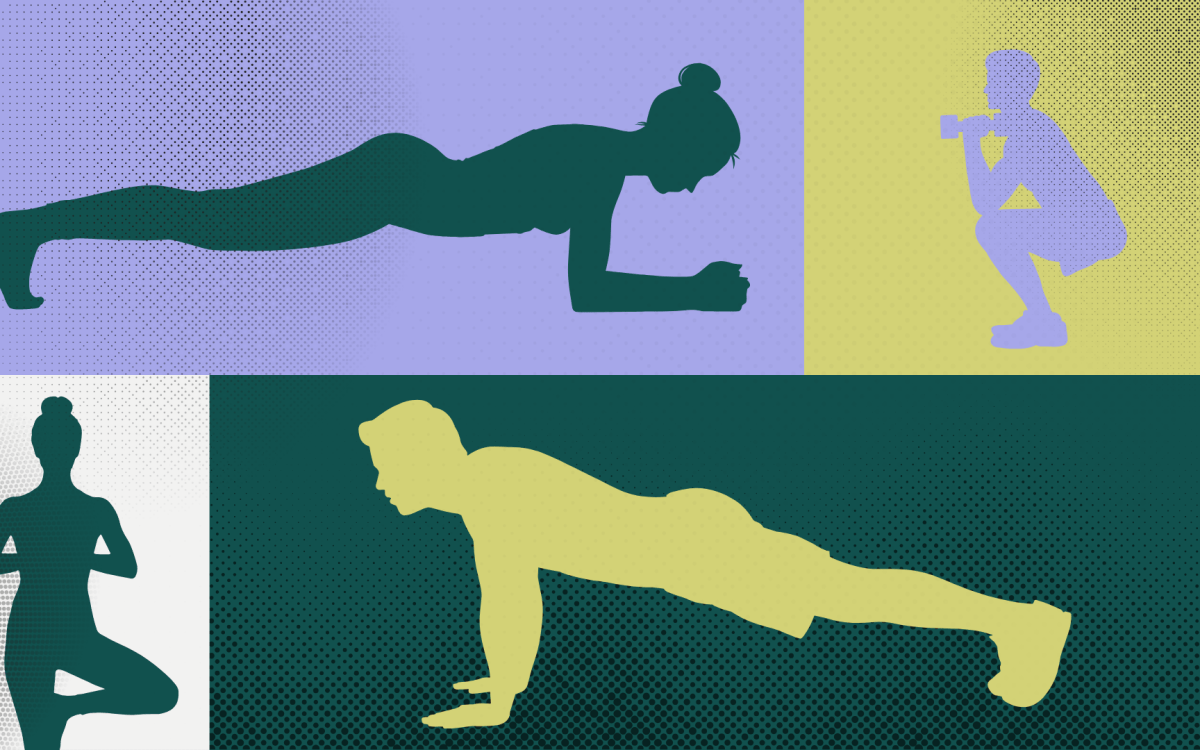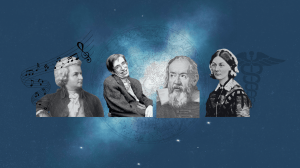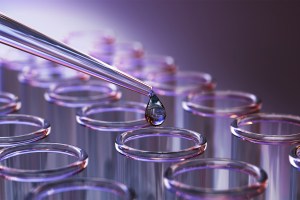Tag: Research
-
Nation & World
An attempt to define ‘academic excellence’
Michèle Lamont, Robert I. Goldman Professor of European Studies and professor of sociology and of African and African American studies, analyzes the system of peer review in her new book “How Professors Think: Inside the Curious World of Academic Judgment.”

-
Health
Training the talent in trouble spots
The Harvard Initiative for Global Health (HIGH) has begun a fellowship program with the aim of identifying and helping train bright young developing-world health professionals in remote regions of the world with the greatest global health challenges.
-
Campus & Community
Concentration in human development, regenerative biology added
Inviting a new generation of scientists into the study of human development, disease, and aging, Harvard University will offer a new undergraduate concentration in Human Developmental and Regenerative Biology (HDRB) starting this fall.
-
Health
Scientists create cell protein machinery
Harvard scientists have cleared a key hurdle in the creation of synthetic life, assembling a cell’s critical protein-making machinery in an advance that has practical, industrial applications and that enhances our basic understanding of life’s workings.
-
Nation & World
New Web site aids researchers seeking funding
With literally tens of billions of dollars in federal research funding suddenly available — and application deadlines for proposals extraordinarily short — Harvard’s Provost’s Office has established a new Web site to aid faculty members seeking grants.
-
Health
Blood types indicate greater risk for cancer
Offering a novel clue about the basic biology of pancreatic cancer, researchers at Dana-Farber Cancer Institute have confirmed a decades-old discovery of a link between blood type and the risk of developing the disease.
-
Health
The third chapter can be the best in the book
There may be something to the adage about growing older and wiser. A lot, in fact, according to the new book by Sara Lawrence-Lightfoot, “The Third Chapter: Passion, Risk, and Adventure in the 25 Years After 50,” (Farrar, Straus and Giroux, 2009). The work explores the trend of learning and development for adults who are…
-
Nation & World
Harvard, ETS to study diversity at predominantly white colleges
Henry Louis Gates Jr., the Alphonse Fletcher University Professor and director of the W.E.B. Du Bois Institute for African and African American Research, has announced a collaboration with the Educational Testing Service (ETS) on a study of the experience of undergraduate members of racial and ethnic minorities on predominantly white college campuses.
-
Campus & Community
Joint Center to offer the Meyer Dissertation Fellowship
The Joint Center for Housing Studies (JCHS) is accepting applications for the John R. Meyer Dissertation Fellowship, a yearlong fellowship award for doctoral candidates who are engaged in writing a dissertation on a housing-related topic consistent with the center’s research agenda.
-
Campus & Community
Gieve named senior fellow at Belfer Center
Sir John Gieve, former deputy governor of Bank of England, was recently announced as the new Harvard Kennedy School (HKS) research fellow at the Belfer Center for Science and International Affairs.
-
Health
Runyon Foundation names fellows from Harvard
The Damon Runyon Cancer Research Foundation has named six Harvard affiliates among its 13 new fellows. The recipients of this prestigious, three-year award are outstanding postdoctoral scientists conducting basic and translational cancer research in the laboratories of leading senior investigators across the country.
-
Health
Capillary formation’s mechanical determinants
Harvard researchers have established a link between the growth of blood vessels and the mechanical stresses caused by the environment within which the vessels grow, a new understanding that researchers hope can lead to novel disease treatments based on manipulating blood flow to living tissues.
-
Campus & Community
Center for European Studies names spring fellows
The Minda de Gunzburg Center for European Studies, dedicated to fostering the study of European history, politics, culture, and society, has recently announced the arrival of its 2009 spring fellows.
-
Health
Patients untapped resource for improving care
As the United States transitions to a new administration, and as the health care crisis mounts, the debate about how to buttress primary care delivery with information technology is getting louder. While much of the attention — and controversy — is focused on how to better equip physicians, little focus appears to be aimed at…
-
Health
Low-income diabetic women at increased risk for postpartum depression
Researchers at Harvard Medical School (HMS) and the University of Minnesota have found that living just above the poverty line and having diabetes increases by 50 percent a woman’s chance of developing postpartum depression — a serious illness that affects about one in 10 new mothers.
-
Health
Calorie reduction key to weight loss, not food type
Many popular diets emphasize either carbohydrate, protein, or fat as the best way to lose weight. However, there have been few studies lasting more than a year that evaluate the effect on weight loss of diets with different compositions of those nutrients.
-
Campus & Community
M-RCBG names spring fellows, scholars
A Korean Trade official, a member of the Northern Ireland civil service, a founder of AllWorld Network, and a British public policy scholar are among the incoming visitors being welcomed this spring at the Mossavar-Rahmani Center for Business and Government at the Harvard Kennedy School (HKS).
-
Campus & Community
Gazette conducts first readership survey
In an attempt to gauge how well the Harvard Gazette addresses the needs, tastes, and desires of its readers, the paper is conducting its first-ever readership survey.
-
Campus & Community
Red Book applications being accepted by Medical School
Harvard Medical School (HMS) invites junior faculty and postdoctoral fellows to apply for fellowships and grants as part of the spring 2009 Red Book Awards.
-
Health
Clinicians override most medication safety alerts
Computer-based systems that allow clinicians to prescribe drugs electronically are designed to automatically warn of potential medication errors, but a new study reveals clinicians often override the alerts and rely instead on their own judgment.
-
Health
Kou is shaking up the world of statistics
Harvard statistics professor Samuel Kou, now 34, grew up in Lanzhou, a city in China’s mountainous northwest near the border with Inner Mongolia. The altitude there is higher than Denver’s storied mile, and earthquakes rumble through town several times a year.
-
Health
Exploring abundance under the sea floor
Called the North Pond Basin, the site — researchers at Harvard and beyond believe — can provide a window onto a vast world of subterranean microscopic life that extends kilometers below the Earth’s surface and which, according to rough estimates, could rival life above the surface in both diversity and sheer mass.
-
Health
Neural wiring hints at nervous system gene limits
Genetics may play a surprisingly small role in determining the precise wiring of the mammalian nervous system, according to painstaking mapping of every neuron projecting to a small muscle mice use to move their ears. These first-ever mammalian “connectomes,” or complete neural circuit diagrams, reveal that neural wiring can vary widely even in paired tissues…
-
Arts & Culture
Project on Soviet Social System goes online
or decades, the Harvard Project on the Soviet Social System (HPSSS) has been a major source of information for researchers analyzing the Soviet Union between World War I and World War II. Due to its archaic and often-confusing indexing system, though, the HPSSS has also been a source of frustration for researchers trying to comb…
-
Campus & Community
‘Symbiotic’ Web archive launched
A new Web archive created by faculty, students, and librarians at Harvard brings original research on Leonard Bernstein and his Boston roots to the public for the first time. The material, which went live on the Web on Jan. 23, was collected during undergraduate seminars and over the course of an international Bernstein Festival at…
-
Campus & Community
Harvard joins Newberry Consortium in American Indian Studies
Harvard University is the most recent member of the Newberry Consortium in American Indian Studies (NCAIS). The NCAIS, inaugurated in June 2008 by the Newberry Library in Chicago, is composed of 10 research universities that have faculty expertise in the field of American Indian Studies. Harvard was inducted Dec. 1.
-
Campus & Community
HSPH’s David Bloom chosen for global health research group
Renowned health economist and demographer David Bloom, chair of the Department of Global Health and Population at the Harvard School of Public Health and Clarence James Gamble Professor of Economics and Demography, has been selected to join a group of 25 ambassadors in the Paul G. Rogers Society for Global Health Research with Research!America.
-
Science & Tech
Exotic force seen for first time
For the first time, researchers have measured a long-theorized force that operates at distances so tiny they’re measured in billionths of a meter, which may have important applications in nanotechnology as scientists and engineers seek new ways to create devices too small for the eye to see.


